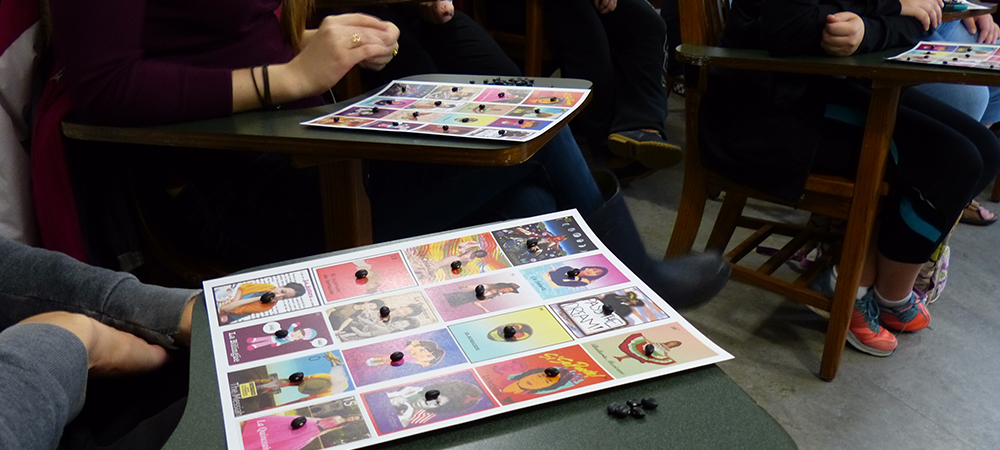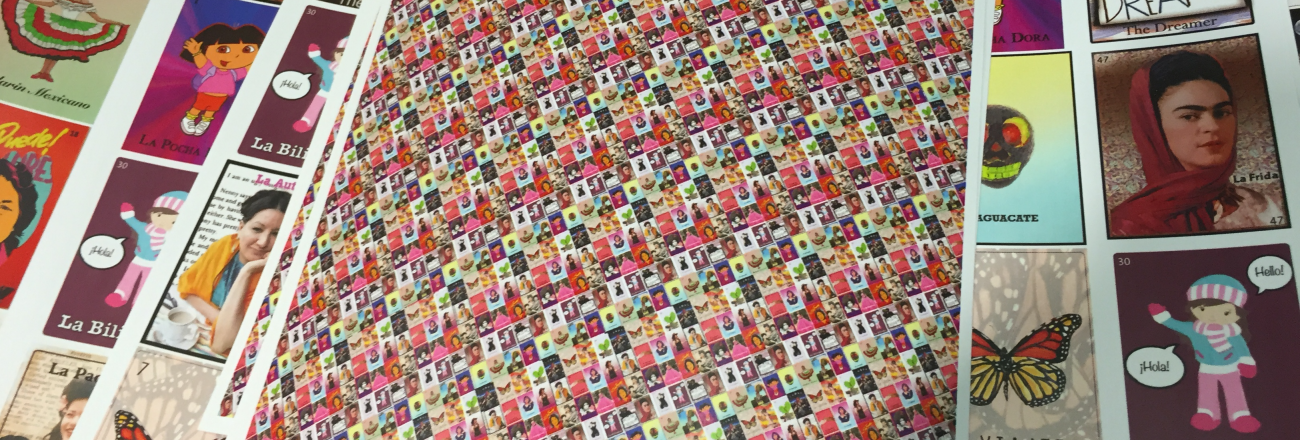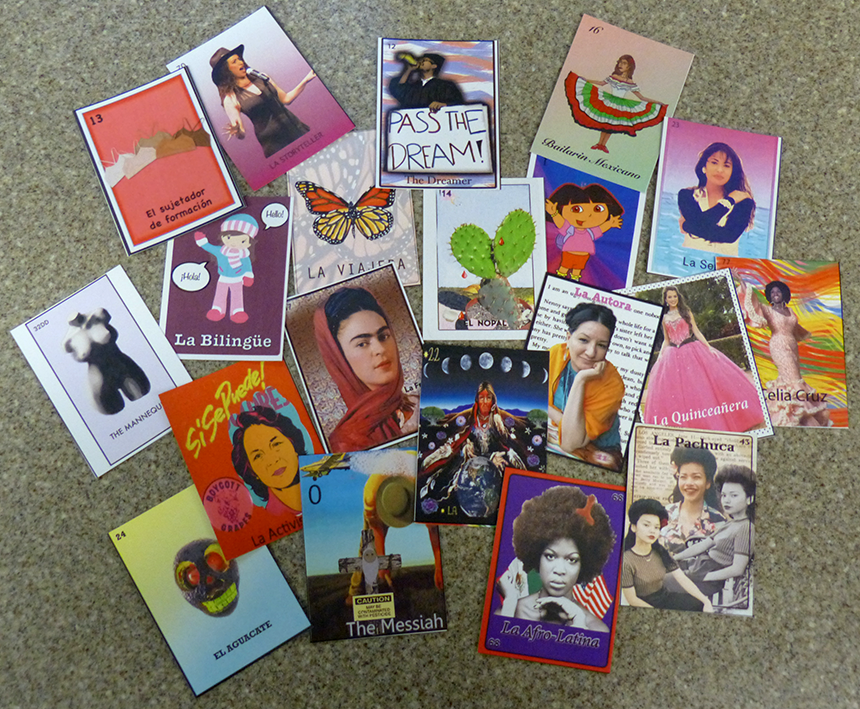
Among many other subjects, WGST216: Woman and Popular Culture explores how representations of women in popular culture can promote or challenge stereotypes and other perceptions. In Fall 2015, Professor Irene Mata asked her students to create their own Lotería cards to create their own popular cultural text to challenge existing representations:
“The game of Lotería is a popular cultural text that offers a snapshot of the power images have in creating meaning. While the traditional Lotería board offers pictures of mundane and everyday objects, it also includes pictures that are rife with problematic stereotypes and oppressive imagery. In using the board as a site of reference, students create their own playing card based on the larger class discussion of the importance of responsible representation. By making our own Lotería board, we collaboratively turn the board into a site of opposition, a site that provides alternative and positive representations of Chicanas and Latinas. The project offers students an opportunity to see first hand how representation matters and the role that cultural producers play in creating oppositional images to negative stereotypes.” ~Irene Mata

Lotería is the Spanish word for lottery. It is a game of chance, similar to bingo, but instead of using numbers on ping pong balls, the caller (cantor, or singer) randomly selects a card from a special deck of 54 and announces it to the players by its name, sometimes using a riddle or humorous patter instead of simply reading the card number. Similar to bingo, players with a matching card image on their board cover it with a marker; the first player with their chips in any previously specified pattern shouts "¡Lotería!" (Lottery!) or "¡Buenas!" (Good!) and is the winner.

Each student and the professor created a single card to form a small deck. While students attended a Photoshop workshop held by LTS staff, they were not required to use Photoshop to create their cards. Techniques used in the creation of their cards varied, and included hand drawing and scanning and using software such as PowerPoint, MSWord, Photoshop, and Illustrator. Rebecca Darling collected the cards and edited to make sure they were all the same physical size for printing. She also designed the game's tablas -- the boards used to play Lotería.
Katherine Ruffin, director of Wellesley College's Book Arts Lab, generously helped to cut the printed cards into decks. On the last day of class, everyone celebrated by playing Lotería. Each student received a copy of her own card and a single tabla. The rest of the files were shared digitally, so students could print out a full deck of cards and tabla set on their own and, if they chose, create additional cards to expand the deck further.
"These cards were inspired by the desire to create positive images of Latina bodies in cultural productions. Some images were created to honor important women in Chican@/Latin@ history--both real and imagined--while others referenced themes and topics discussed in the class. All offer a different interpretation of Chican@/Latin@ bodies. What a better way to insert strong figures into our histories than in a well-known and loved game!" ~Irene Mata
Professor Irene Mata will be teaching this class again in Spring 2017, when new cards will supplement the existing deck to continue expanding the game.
A complete class Lotería deck and a full set of cards are available to check out from the Clapp Library.
Faculty: Irene Mata
LTS Staff: Rebecca Darling, Katherine Ruffin, Emily Belanger
Keywords: games, board games, WGST, Latino, Latina, Latin@
